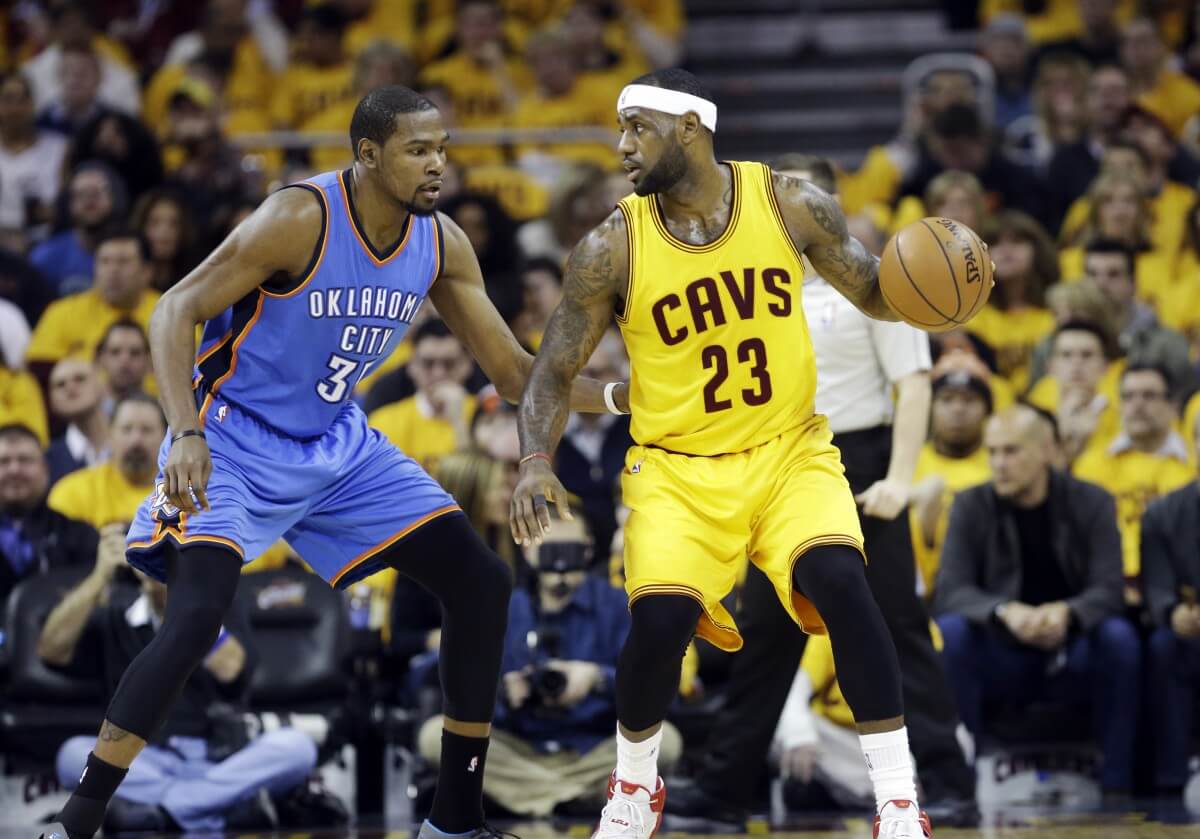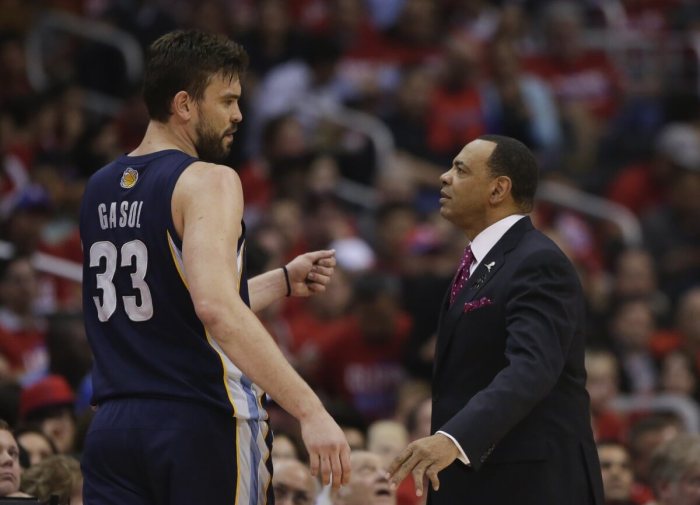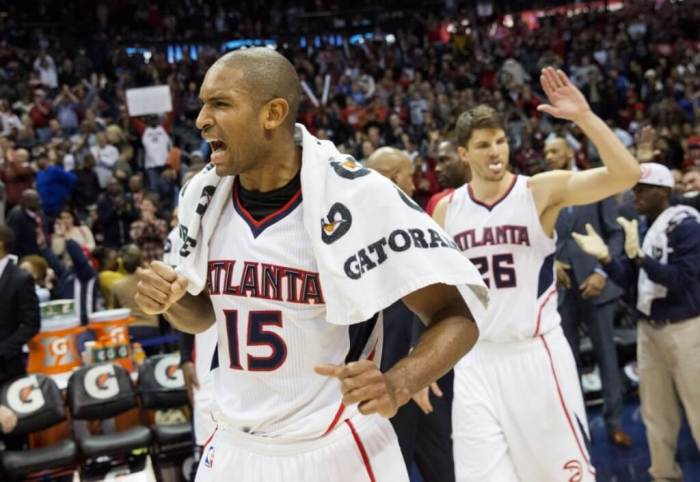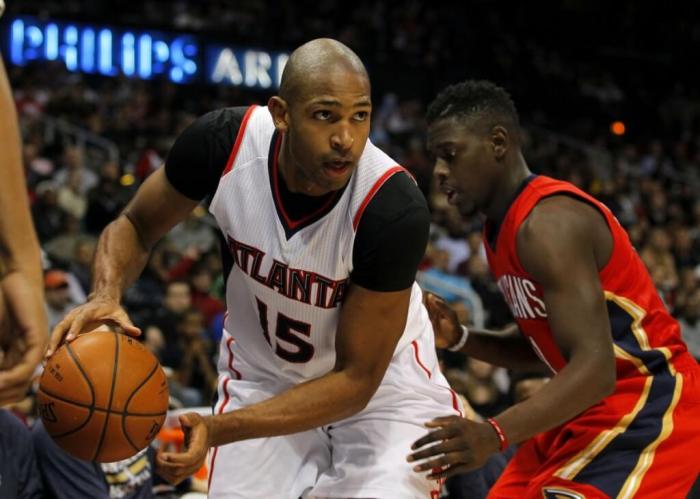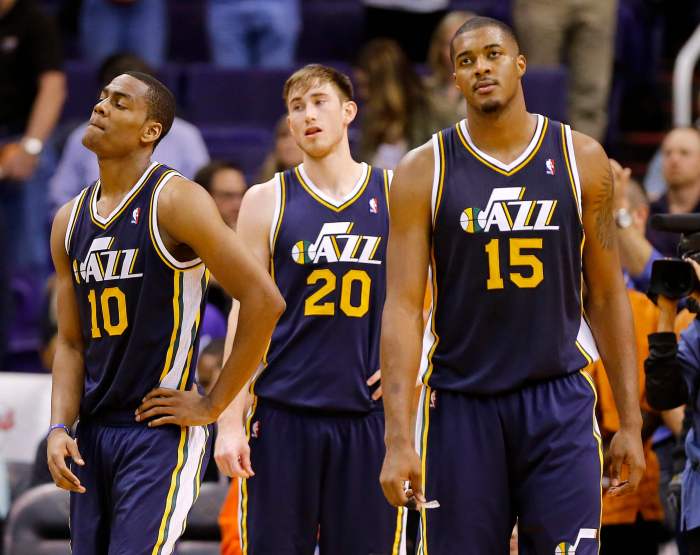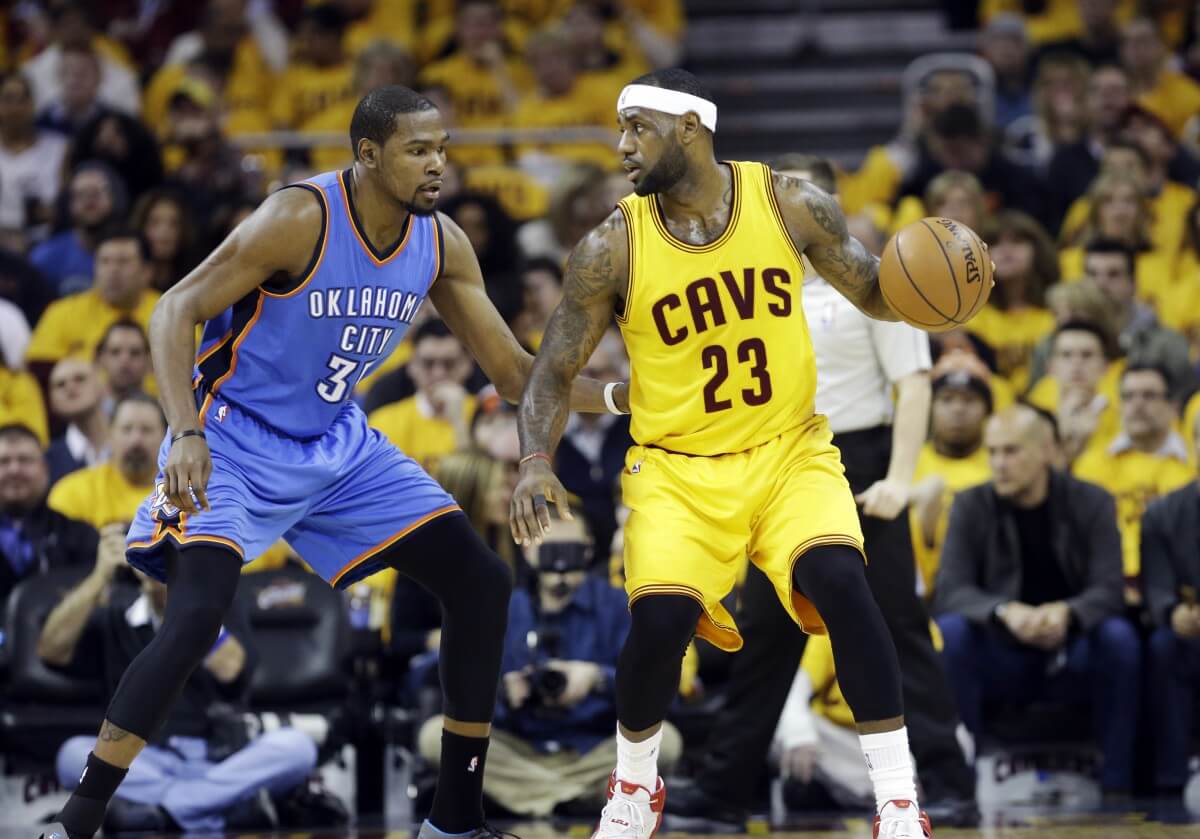
Barring the type of Grand & Unexpected Wild Offseason Move the team trademarked between 2011 and 2014, this year’s Brooklyn Nets roster is close to set. Thirteen players are on guaranteed contracts, with at least four more vying for the final two spots out of Nets training camp. The Nets don’t look primed to make any more big moves, unless they find a taker for Joe Johnson’s expiring deal.
Johnson is the only major Nets rotation player guaranteed to come off the books next season[note]With apologies to Willie #CallWillieUp Reed and Quincy Miller’s non-guaranteed deal.[/note], but it’s a big one coming at a big time. Johnson’s expiring $24.9 million, coupled with the looming salary cap spike, means the Nets could have between $30 and $40 million in salary cap space.[note]That number depends on what they decide to do with Jarrett Jack, who has a minor guarantee next year, and what their players on minor player options decide to do after this season.[/note]
But with that space comes danger. The last time the Nets went into free agency armed with cap space and big dreams was 2010, and they ended up introducing, well, this. Next offseason brings more cap space and fewer options than that splashy summer.
Former Nets assistant general manager Bobby Marks penned a piece for HoopsHype over the weekend detailing the difficulties that’ll come for any team looking to load up on talent next summer. Take a look at the bonkers amount of estimated cap space the league is going to have:
There is the potential for 24 out of 30 teams looking to have an estimated $825 million in cap space. Many fans are wide-eyed by the idea of their favorite team having “lots of cap space” for the summer of 2016. After all, LeBron James and Kevin Durant are free agents next year.
Yet when you look closer… Beyond these two All-Stars, what is the talent level available? Will there be enough true talent for teams to spend at least $81 million?
That is the number teams need to spend to hit the minimum 90 percent of the salary cap. Will the summer of 2016 be the year of one-year contracts because of the lack of overall talent and depth?
Take a look at the players Marks lists as free agents next summer — it’s hardly a talent-laden cast.
It’s worth noting that teams don’t have to hit the salary floor. They just pay the difference if they end up below the figure. But to fill that space — and you might as well, if you’re paying anyway — you’ll likely have to overpay to get them, with a more talented free agent class two years away:
The free agent class of 2016 may end up being known as the summer of inflation. What no one is really talking about yet but should be is the class of the summer of 2017. That’s when the free agent class really overflows with talent. Stephen Curry, Chris Paul (PO), Derrick Rose, Russell Westbrook, Blake Griffin (PO), Hayward (PO), Serge Ibaka, Rudy Gay (PO), Paul Millsap (PO) and Monroe (PO) just to name a few.
There will be much more talent to go around with a free agent class that is full of young stars with tremendous upsides. But can teams find a way to navigate the unpredictable waters of the much-hyped summer of 2016 to get the real treasure?
So what’ll the Nets do? LeBron’s not going anywhere. They seem resigned to the idea that Durant, the real prize of the offseason, probably won’t join them in Brooklyn (though they’ll obviously leave that door open). Mike Conley is a popular name — he played under Nets coach Lionel Hollins in Memphis, and credits Hollins for his development as a point guard. But Conley has spent his entire career with the Grizzlies, and may not want to leave the relatively successful franchise.
If the Nets strike out on Conley and Durant, there’s a lot of money they’ll need to throw at either aging stars or below-max talent — and they’ll be competing with two-thirds of the league to fill nearly a billion dollars in cap room. The Nets also have an added incentive to build through free agency, since they don’t control a single draft pick of their own — first or second round — until 2019.
The team could look to sign players to shorter deals and capitalize on the 2017 class. But will worthwhile free agents in a thin class agree to short-term contracts when just about everyone will be vying for their services? On the flip side, will Nets management invest in middling players that aren’t part of a long-term plan if the team isn’t winning or turning a profit, or will they poke around for risky short-term moves like they have in the past?
It’s a tricky tightrope — and if they fall flat, it could mean more waiting… and big changes.
Bobby Marks, HoopsHype — The great big myth of Free Agency 2016

